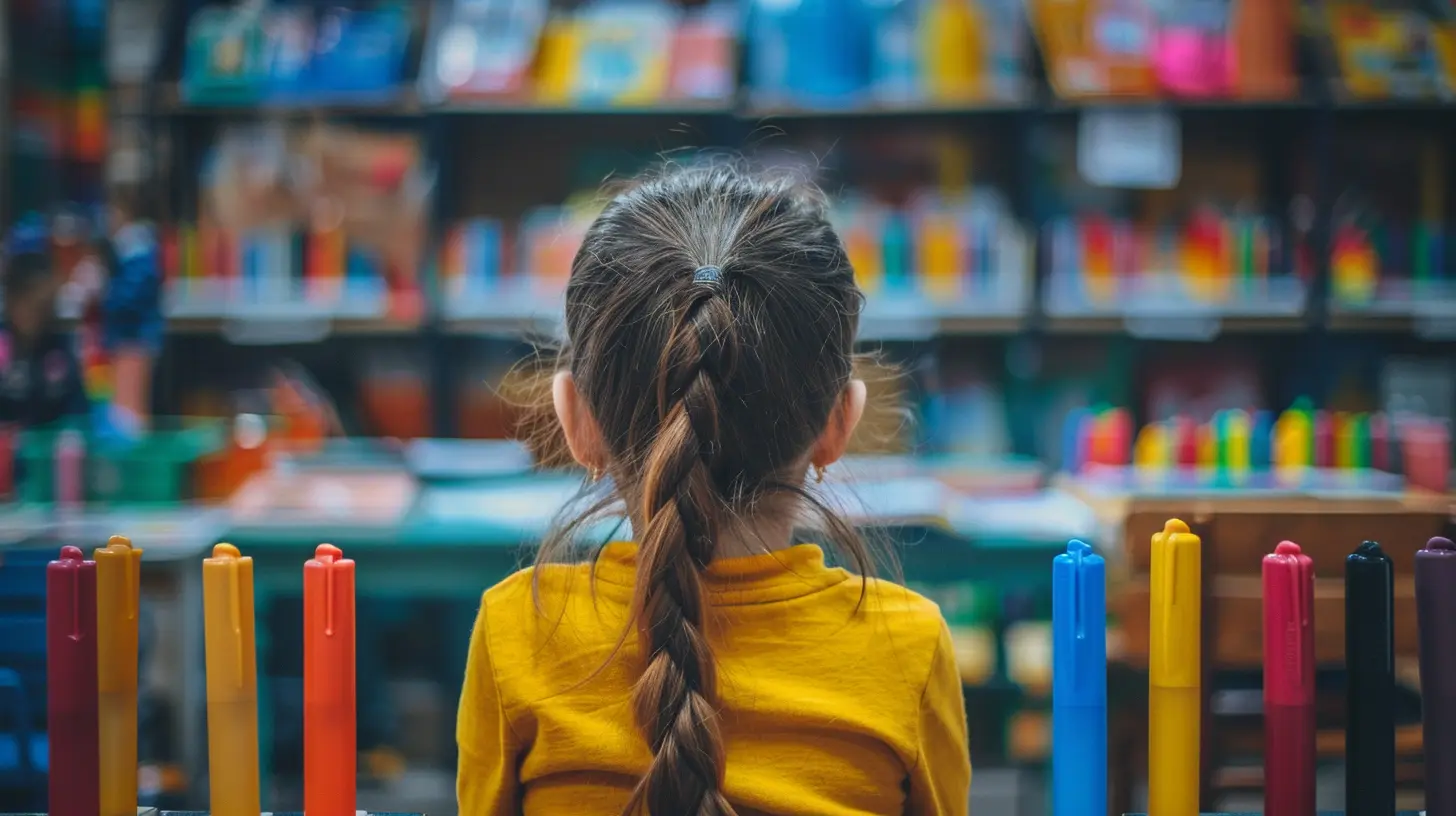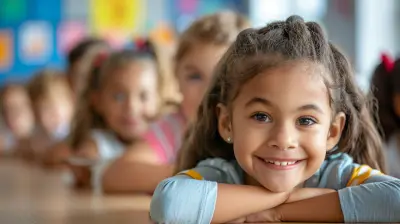How Educational Research Can Help Combat Learning Loss
2 May 2025
Have you ever felt like you’ve forgotten things you once knew? Maybe you took a break from studying, and suddenly concepts that seemed easy before feel distant and unfamiliar. This isn’t just a personal struggle—it’s a widespread issue known as learning loss. And guess what? It affects millions of students worldwide.
The good news? Educational research holds the key to tackling this problem head-on. By studying how students learn, what strategies work best, and where the gaps are, researchers provide valuable insights that help minimize learning setbacks. Whether you're an educator, parent, or student, understanding these findings can make a real difference.
In this article, we'll dive deep into how educational research is combating learning loss and why it matters now more than ever.

What Is Learning Loss?
Before we talk about solutions, let’s define the problem. Learning loss refers to the decline in knowledge and skills that students experience after being away from structured learning—often during summer breaks, school closures, or extended absences.This phenomenon isn’t just about forgetting a few math formulas or historical dates. It can significantly affect a student’s academic progress, making it harder to keep up with future lessons. In some cases, the gap created by learning loss can take months—or even years—to close.

Causes of Learning Loss
1. School Breaks and Disruptions
One of the biggest contributors to learning loss is extended time away from school. Research shows that students, especially in subjects like math and reading, tend to forget key concepts during long vacations.2. Lack of Engagement
When students aren't actively engaged in learning, their brains don’t reinforce the information. This can happen when lessons are too boring, too difficult, or when students simply don’t see the relevance of what they're learning.3. Limited Access to Resources
Not all students have equal access to learning materials, internet connectivity, or even supportive home environments. Those from underprivileged backgrounds are often hit the hardest by learning loss.4. Pandemics and Emergencies
Events like the COVID-19 pandemic showed us just how fragile traditional learning structures can be. School closures led to massive gaps in education, and even with online learning, many students struggled to keep up.
How Educational Research Helps Combat Learning Loss
Educational research doesn’t just highlight problems—it provides actionable solutions. Here’s how:1. Developing Effective Teaching Strategies
Researchers analyze various instructional methods to see which ones yield the best results. For example:- Active learning techniques (like group discussions, problem-solving, and hands-on experiments) have been found to improve retention compared to passive lecture-based learning.
- Spaced repetition, where concepts are reviewed over time, helps students retain knowledge better than cramming.
By implementing these strategies in schools, educators can ensure that students retain more of what they learn.
2. Understanding How Students Learn Best
Not all students learn the same way. Some are visual learners, while others grasp concepts better through hands-on experience. Educational research helps identify different learning styles, allowing teachers to tailor their methods accordingly.For example, studies have shown that:
- Multisensory learning (using visuals, sounds, and hands-on activities) enhances memory retention.
- Gamification in learning—using rewards, challenges, and interactive elements—keeps students engaged and motivated.
3. Early Detection and Intervention
Thanks to educational research, we now have tools to detect learning gaps early. Standardized tests, formative assessments, and AI-powered analytics help educators identify struggling students before they fall too far behind.With this data, teachers can provide targeted support, such as:
- Tutoring programs to reinforce foundational skills.
- Personalized learning plans that cater to each student’s needs.
- Mentoring and peer support systems to boost confidence and academic performance.
4. Leveraging Technology for Learning
In today’s digital age, technology plays a critical role in combating learning loss. Research has shown that:- Online learning platforms, educational apps, and virtual tutoring can help students keep up with lessons even outside the classroom.
- Adaptive learning systems, which adjust content based on a student's progress, provide a customized learning experience.
These tech-driven solutions bridge learning gaps and ensure that students can continue their education—no matter where they are.
5. Strengthening Parental Involvement
Believe it or not, parents play a huge role in reducing learning loss. Studies show that students perform better when their parents are actively involved in their education.Educational research highlights effective ways parents can support learning at home, such as:
- Reading with children daily to build strong literacy skills.
- Encouraging educational games and puzzles to reinforce math and problem-solving abilities.
- Setting up structured routines to create a balance between study and play.
6. Building Resilient Education Systems
One of the biggest lessons from educational research is the importance of flexibility in learning. Schools and educators must be prepared for unexpected disruptions by implementing:- Blended learning models that combine in-person and online education.
- Emergency learning plans to ensure continuity during crises.
- Professional development programs for teachers to help them adapt to new teaching methods.
By creating resilient education systems, we can ensure that learning never stops, no matter the circumstances.

The Road Ahead: A Collective Effort
Combating learning loss isn’t just the responsibility of schools or teachers—it’s a team effort that involves parents, educators, policymakers, and even students themselves.- Teachers must continuously adapt their methods based on research findings.
- Parents should provide a supportive learning environment at home.
- Policymakers need to allocate resources for research-based education initiatives.
- Students should develop self-directed learning habits to retain knowledge better.
When everyone plays their part, we can significantly reduce learning loss and create a stronger, more effective education system.
Final Thoughts
Learning loss is a real challenge, but educational research is our secret weapon in overcoming it. By implementing research-backed strategies, we can ensure students not only retain their knowledge but thrive in their learning journeys.So, whether you're a teacher looking for better ways to engage your students, a parent wanting to support learning at home, or a student trying to stay ahead—remember, the solutions are out there. And with a little effort, we can turn learning loss into a thing of the past.
all images in this post were generated using AI tools
Category:
Educational ResearchAuthor:

Madeleine Newton
Discussion
rate this article
6 comments
Lacey Pruitt
Thank you for this insightful article! It's inspiring to see how educational research can provide practical solutions to address learning loss and support our students effectively.
May 14, 2025 at 12:52 PM

Madeleine Newton
Thank you for your kind words! I'm glad you found the article insightful and inspiring.
Priscilla Ramos
Educational research provides valuable insights into effective teaching strategies and interventions, helping educators address learning loss. By leveraging evidence-based practices, we can better support students’ needs and enhance their academic recovery.
May 10, 2025 at 10:35 AM

Madeleine Newton
Absolutely! Educational research is essential in identifying effective strategies that can directly support educators and enhance student recovery from learning loss.
Milena Stone
This article effectively highlights the critical role of educational research in understanding and addressing learning loss. By leveraging data-driven strategies and innovative practices, educators can tailor interventions that meet diverse student needs, ultimately fostering resilience and promoting equitable learning opportunities.
May 5, 2025 at 12:05 PM

Madeleine Newton
Thank you for your insightful comment! I'm glad you found the article emphasizes the importance of educational research in addressing learning loss and promoting equity in education.
Caden McIntosh
This article compellingly highlights the crucial role of educational research in addressing learning loss. By integrating evidence-based strategies and targeted interventions, educators can better support struggling students. However, the challenge lies in effectively translating research into practical, scalable classroom solutions.
May 5, 2025 at 4:51 AM

Madeleine Newton
Thank you for your insightful comment! You're absolutely right—translating research into actionable strategies is key to effectively addressing learning loss in classrooms.
Zachary James
This article highlights the invaluable role of educational research in addressing learning loss. By leveraging data-driven insights, we can tailor approaches that meet students' needs and foster resilience. Together, we can create impactful strategies that empower learners and ensure their success in overcoming challenges. Keep inspiring change!
May 4, 2025 at 2:25 AM

Madeleine Newton
Thank you for your insightful comment! I'm glad you found the article valuable in highlighting the importance of educational research in addressing learning loss. Let's continue to inspire change together!
Maxwell Pope
This article beautifully highlights the vital role of educational research in addressing learning loss. By understanding and applying these insights, we can empower educators and students alike, fostering resilience and growth. Thank you for shedding light on this important issue!
May 2, 2025 at 6:49 PM

Madeleine Newton
Thank you for your kind words! I'm glad you found the article helpful in highlighting the importance of educational research in tackling learning loss.




